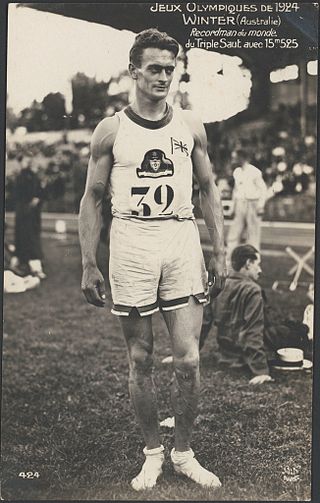
The Winter Olympic Games, also known as the Winter Olympics, is a major international multi-sport event held once every four years for sports practiced on snow and ice. The first Winter Olympic Games, the 1924 Winter Olympics, were held in Chamonix, France. The modern Olympic Games were inspired by the ancient Olympic Games, which were held in Olympia, Greece, from 776 BCE to 394 CE. The Baron Pierre de Coubertin of France founded the International Olympic Committee (IOC) 1,500 years later in 1894, leading to the first modern Summer Olympic Games in Athens, Greece in 1896. The IOC is the governing body of the Olympic Movement, with the Olympic Charter defining its structure and authority. The original five Winter Olympic Sports were bobsleigh, curling, ice hockey, Nordic skiing, and skating. The Games were held every four years from 1924 to 1936, interrupted in 1940 and 1944 by World War II, and resumed in 1948. Until 1992, the Summer Olympic Games and the Winter Olympic Games were held in the same year. A decision to change this was made in 1986, when during the 91st International Olympic Committee session, IOC members decided to alternate the Summer Olympic Games and the Winter Olympic Games on separate four-year cycles in even-numbered years. Also, at that same congress it was decided that 1992 Winter Olympics would be the last to be held in the same year as the Summer Games and that to change the rotation, the games that would be held in 1996 would be brought forward by two years, being scheduled to 1994. After those games, the next were to be held in 1998 when the four-year Olympic Cycle resumed.

Australia sent a delegation to compete at the 1936 Winter Olympics from 6 to 16 February 1936 in Garmisch-Partenkirchen, Germany. This was the nation's first appearance at an Winter Olympic Games since the competition began in 1924. Australia delegation consisted of one competitor. That was speed skater, Kenneth Kennedy who competed in three events in the speed skating competitions. He finished in 29th overall in the 500 meters and 33rd overall in the 1500 meters and the 5000 meters.

The 500 metres speed skating event at the 1924 Winter Olympics was held on 26 January 1924 at the Stade Olympique de Chamonix in Chamonix, France. One of five speed skating races to be contested at these Games, this was the first event ever contested at the Winter Olympics. The event was won by American Charles Jewtraw who became the first Winter Olympics gold medallist.

The men's triple jump event was part of the track and field athletics programme at the 1924 Summer Olympics. The competition was held on Saturday, July 12, 1924. Twenty triple jumpers from twelve nations competed. The maximum number of athletes per nation was 4. The event was won by Nick Winter of Australia, the nation winning gold in its debut in the event. Argentina also medaled in its first triple jump appearance, with Luis Brunetto taking silver. Defending champion Vilho Tuulos of Finland took bronze, the fourth man to win a second medal in the event.
The 5000 metres speed skating event was part of the speed skating at the 1924 Winter Olympics programme. The competition was held on Saturday, January 26, 1924. Thirty-one speed skaters from thirteen nations were due to compete, but nine athletes withdrew, so in the end twenty-two speed skaters from ten nations competed. The Canadian athlete Charles Gorman abandoned the race after the first round.
The 10,000 metres speed skating event was part of the speed skating at the 1924 Winter Olympics programme. The competition was held on Sunday, January 27, 1924. Twenty-one speed skaters from nine nations were due to compete, but five athletes withdrew, so in the end sixteen speed skaters from six nations competed. The French athlete George de Wilde abandoned the race.
The all-round speed skating event was part of the speed skating at the 1924 Winter Olympics programme. It was a combined event of all four distances, which were held on Saturday, January 26, 1924 and on Sunday, January 27, 1924 during the Games. It was the only time that medals were awarded in all-round. Twenty-seven speed skaters from twelve nations were scheduled to compete, but four did not come to start at all, while another twelve abstained from one or more races, so that only eleven speed skaters from five nations competed in all four individual events.
The 1500 metres speed skating event was part of the speed skating at the 1928 Winter Olympics programme. The competition was held on Tuesday, 14 February 1928. Thirty speed skaters from 14 nations competed.
The 1500 metres speed skating event was part of the speed skating at the 1932 Winter Olympics programme. The competition was held on Friday, February 5, 1932. Eighteen speed skaters from six nations competed. Like all other speed skating events at this Olympics the competition was held for the only time in pack-style format, having all competitors skate at the same time.
The 1500 metres speed skating event was part of the speed skating at the 1936 Winter Olympics programme. The competition was held on Thursday, 13 February 1936. Thirty-seven speed skaters from 15 nations competed.
The 1500 metres speed skating event was part of the speed skating at the 1948 Winter Olympics programme. The competition was held on Monday, 2 February 1948. Forty-five speed skaters from 14 nations competed.

The men's high jump event was part of the track and field athletics programme at the 1924 Summer Olympics. The competition was held from Sunday, July 6, 1924, and Monday, July 7, 1924. Twenty-seven high jumpers from 17 nations competed. The maximum number of athletes per nation was 4. The event was won by Harold Osborn of the United States, the nation's seventh consecutive victory in the men's high jump. As in 1920, the Americans went 1–2 in the event, with Leroy Brown earning silver. France took its first high jump medal since 1908 with Pierre Lewden's bronze.
The 1500 metres speed skating event was part of the speed skating at the 1952 Winter Olympics programme. The competition was held on Monday, 18 February 1952 at 5 p.m. Thirty-nine speed skaters from 13 nations competed.

The men's 400 metres hurdles event was part of the track and field athletics programme at the 1924 Summer Olympics. The competition was held on Sunday, July 6, 1924, and on Monday, July 7, 1924. Twenty-three hurdlers from 13 nations competed. The maximum number of athletes per nation was 4. The event was won by Morgan Taylor of the United States, the fifth consecutive victory by an American in the event. Erik Wilén received silver, Finland's first medal in the men's 400 metres hurdles. Another American, Ivan Riley, took bronze.
Speed skating at the 2010 Winter Olympics was held at the Richmond Olympic Oval, Richmond, British Columbia, between 13 and 27 February 2010.
The 1500 metres speed skating event was part of the speed skating at the 1956 Winter Olympics programme. The competition was held on naturally frozen ice on the Lake Misurina. It was held on Monday, 30 January 1956, started at 2 PM and ended at 4:05 PM. Fifty-four speed skaters from 18 nations competed.
The 5000 metres speed skating event was part of the speed skating at the 1956 Winter Olympics programme. The competition was held on naturally frozen ice on the Lake Misurina. It was held on Sunday, 29 January 1956, started at 11 a.m. and ended at 3 p.m. Forty-six speed skaters from 17 nations competed.
The 1500 metres speed skating event was part of the speed skating at the 1960 Winter Olympics programme. The competition was held on the Squaw Valley Olympic Skating Rink and for the first time at the Olympics on artificially frozen ice. It was held on Friday, February 26, 1960. Forty-eight speed skaters from 16 nations competed.
The women's 1500 metres speed skating event was part of the speed skating at the 1960 Winter Olympics programme. It was the first appearance of women's speed skating events at the Olympics and the 1500 metres were the second contest after the 500 metres. The competition was held on the Squaw Valley Olympic Skating Rink and for the first time at the Olympics on artificially frozen ice. It was held on Sunday, February 21, 1960. Twenty-three speed skaters from ten nations competed.

Speed skating at the 2018 Winter Olympics was held at the Gangneung Oval in Gangneung, South Korea between 10 and 24 February 2018.








